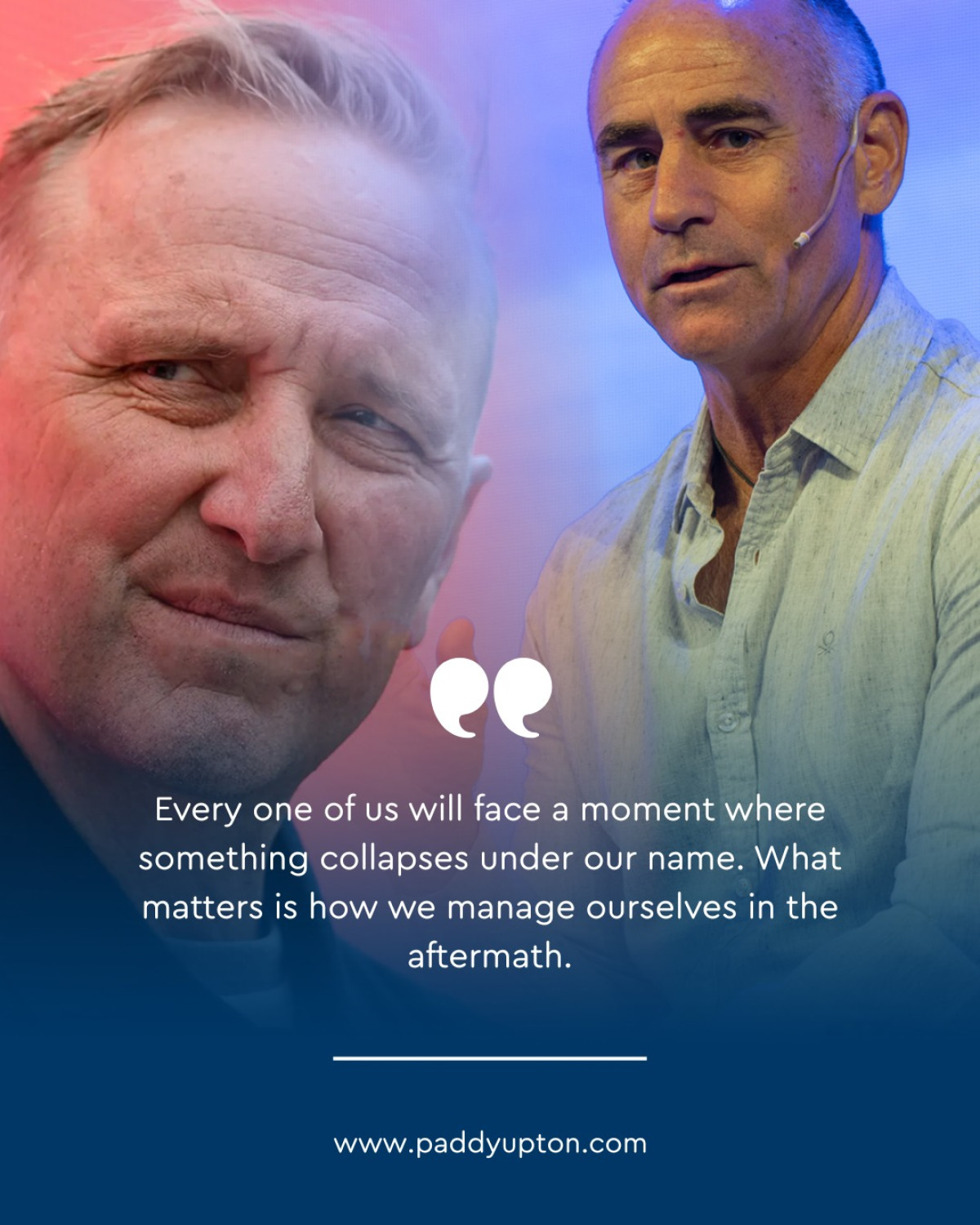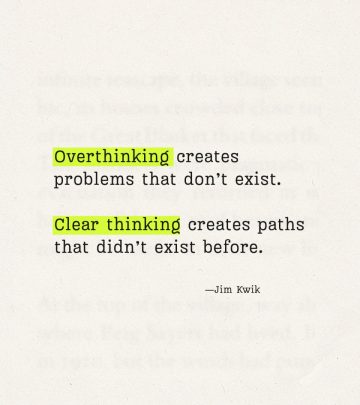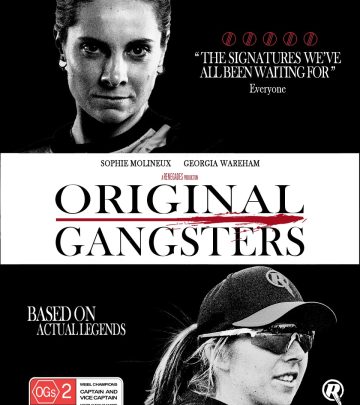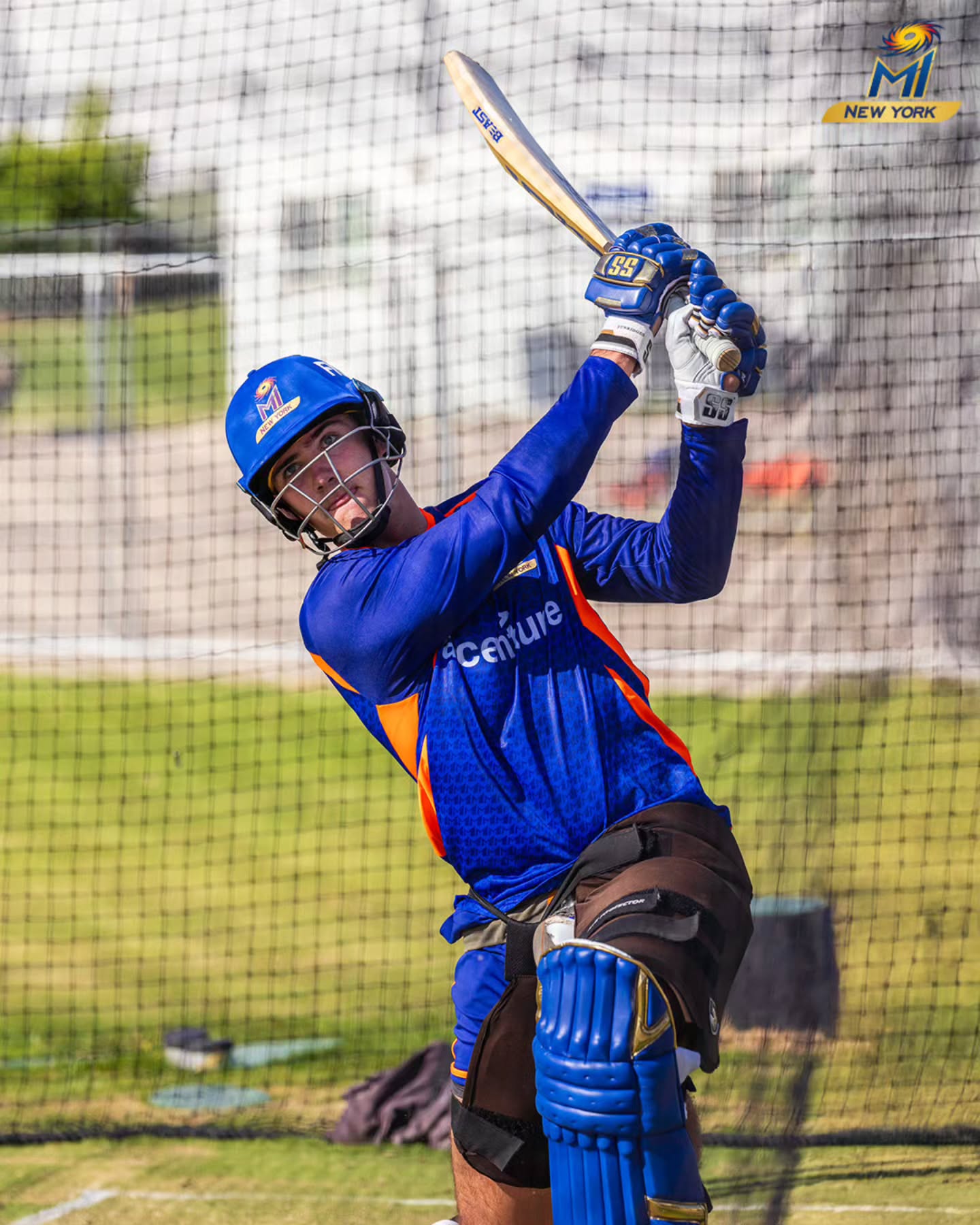When Failure Speaks: The Moment You Dropped The Ball
Setbacks ignite growth – daring leadership shines in moments of public failure to inspire!

Image: Instagram
Paddy Upton, renowned for his insights on the mental game and leadership, has struck a chord once again with his latest reflections on public failure and responsibility. In his recent post, he writes about the moment when everything seems to collapse under one’s name—a moment when the eyes are fixed upon you and the voices are loud, leaving you standing alone amidst the rubble. Drawing from a conversation with former cricketer Allan Donald following the 1999 World Cup run-out, Upton challenges us to reframe setbacks as opportunities for growth.
The Weight Of Public Failure
In his candid post, Upton questions the inevitability of failure: “The real test isn’t whether it happens — because at some point, it will. The question is: how do we respond?” These words underscore the emotional burden of being in the spotlight during moments of collapse. The coach and mental performance expert reminds us that public failure not only tests our individual resolve but also shapes our ability to lead and rebuild.
Reflecting on such crucial moments, Upton references the memorable incident during the 1999 World Cup—a turning point for many involved in cricket and leadership alike. His narrative invites readers to consider how personal setbacks, when met with resilience, can transform into stepping stones for future excellence. The conversation with Allan Donald, a legendary figure in cricket, reinforces that leadership is often defined not by the absence of mistakes but by one’s capacity to learn and evolve from them.
Leadership Beyond The Scoreboard
Upton’s commentary resonates deeply with those who have experienced the sting of public failure. He encapsulates the dual nature of leadership: acknowledging mistakes while using them to fuel growth. The message is clear—when failure occurs, how we manage our emotions and learn from the experience is far more important than the failure itself. This philosophy is mirrored in his earlier articles, where he has discussed topics ranging from the benefits of a well-timed pause to the importance of managing emotions on and off the field.
One striking aspect of Upton’s work is his focus on creating an environment where leaders learn to respond rather than react. This approach reinforces a broader narrative that success and progress require a deliberate pause between feeling an emotion and expressing it. As he has previously noted in his social media musings, high performers in both sport and business often benefit from this mental reset—developing the habit of distraction management and ultimately honing the art of sustainable performance.
Building Resilience Through Reflection
The post is not merely about failure; it is an exploration of the resilience inherent in every setback. Upton’s reflective style encourages a shift from self-criticism to accountability. In a series of related posts, he has eloquently juxtaposed the ideas of ego-driven leadership against transformative developmental leadership. The underlying theme remains clear: building a team or a culture that values learning over instantaneous perfection is the cornerstone of long-term success.
The piece also highlights the emotional price of being the one everyone looks to in times of crisis. Upton underscores that the responsibility does not solely rest on preventing failure but also on offering support to those grappling with its aftermath. His insights serve as a wake-up call to leaders across various fields—be it in elite sport or the corporate arena—that real strength lies in the willingness to stand up, absorb the blow, and inspire others by example.
From The Pitch To The Boardroom
Paddy Upton’s approach to the mental game is not confined to the cricket pitch. His philosophy, enriched by decades of experience, has long influenced athletes and professionals alike. Whether it is enabling young cricketers to manage pressure or advising business leaders on the value of strategic pauses, his lessons are both timely and transformative. The imagery in his accompanying Instagram post—a candid shot that captures raw emotion and vulnerability—echoes the sentiment of his written word. It reinforces the idea that moments of failure are an integral part of any performance, whether on the field or in life.
The conversation around failure also touches on the broader impact of leadership. In an era where social media amplifies every misstep, Upton reminds us that the measure of a leader is not a flawless record, but the capacity to recover and guide others through adversity. His message is a call to action for teams and individuals to shift their focus from avoiding failure to embracing it as an essential ingredient for growth.
Throughout his career, Upton has consistently emphasized that leadership is a dynamic interplay between individual responsibility and collective progress. His recent reflection on being “the one who dropped the ball” serves as a powerful reminder that even the most visible failures harbor lessons that can catalyze lasting change. It is a narrative that resonates across boundaries—be it in sport, business, or everyday life—underscoring that it is how we rise from the rubble which ultimately defines us.
Paddy Upton’s thoughtful examination of failure and resilience adds another important chapter to his body of work. It challenges all of us to consider not only the immediate impact of our mistakes but also the enduring value of learning and leading with purpose.
Read full bio of Joyce
























